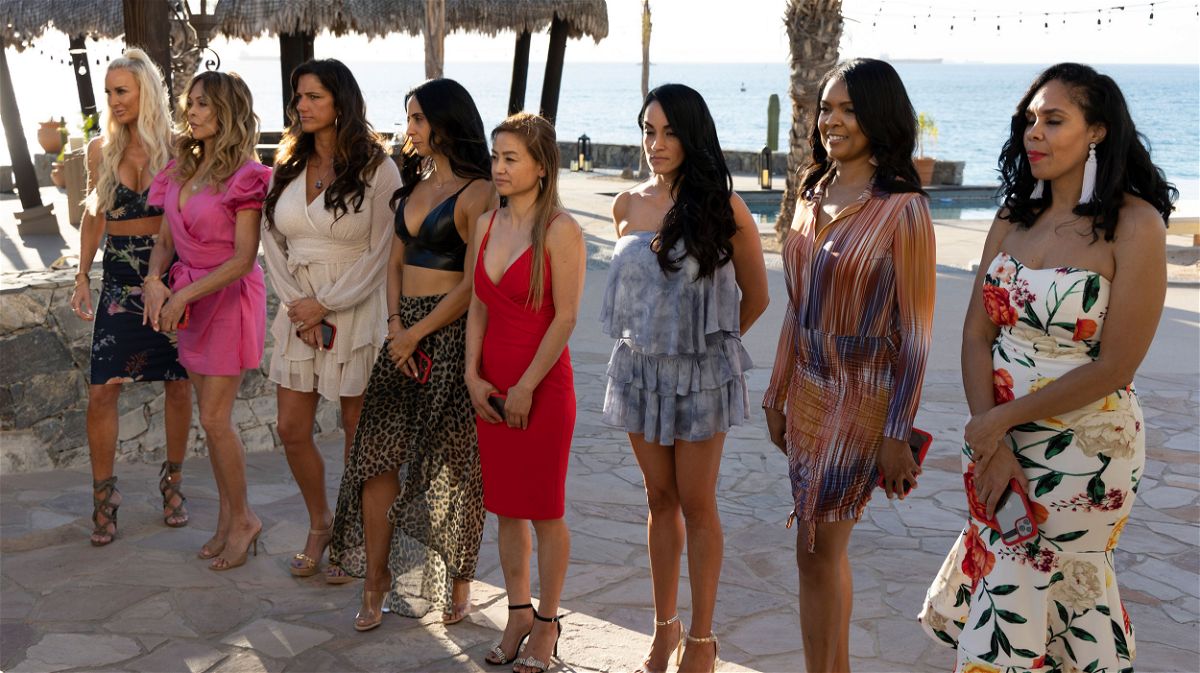‘MILF Manor’ is queasy reality TV, but that hasn’t stopped people from talking about it

‘MILF Manor’ is a reality TV show
By AJ Willingham, CNN
TLC’s “MILF Manor” isn’t marketed as a horror show. The new series appears to the innocent eye as a predictably campy dating show starring eight older women (the titular MILFS) looking to find love with a bunch of younger men in some anonymous tropical locale.
Then, the twists start coming like an M. Night Shyamalan movie: The crop of boy toys are actually the sons of the MILFs, meaning both mother and son are forced to witness their respective budding May-December romances. In one of the first episodes, the blindfolded women have to identify their own sons by fondling the men’s abs. You can almost hear the Hitchcockian violins screech in the background as a young man tells the camera how his mother always got attention because her “headlights are always on.”
“It didn’t bother you when you were a baby sucking on them,” she replies. “You were really thirsty.”
It’s a lot. Too much, it seems, for even some of the most gleefully debased reality TV devotees. (TLC and CNN share parent company Warner Bros. Discovery.)
Maureen Callahan at The Daily Mail called the show “repulsive” and “exploitative.” Cody Ko, a popular YouTuber known for commentary on strange dating shows, was stunned into concerned silence by footage of the show’s “sons” talking about their mothers’ sexual charms. (And yet, his two videos on the subject attracted millions of views — a reminder that shock is just as valuable as substance.)
No one is arguing that reality TV is high art. But is there a difference between a show so ridiculous you can’t help but look away, and a show so ridiculous you just can’t watch?
“Great reality television shows have compelling concept and different characters, and they push you to think about topics or people in different ways,” says Kate Casey, host of the podcast “Reality Life with Kate Casey.” “It is a huge social experiment. I think of us all as cultural anthropologists.”
While a show like “MILF Manor” may turn some people’s stomachs, Casey points out it’s far from the first time something this shocking has gone to air.
“When ‘Who Wants to Marry a Multi-Millionaire?’ aired in 2000, plenty of people were horrified,” she tells CNN. “Sometimes extreme show concepts pull out the most interesting insights.”
Of course, there is such a thing as too extreme. Reality shows went through a very pointed era of growing pains in the early 2000s, when it seemed every cruel idea that could pass one’s mind was given air time.
Some glamorized extensive cosmetic surgery and made weight and looks the butt of the joke (“The Swan,” “More to Love”). Others made gender and sexuality a punchline, like “There’s Something About Miriam,” in which the “shocking” reveal was that the woman the male contestants were vying for was transgender. Fox’s “Playing it Straight,” which only aired for three episodes in 2004, challenged a woman to go on several dates with men and determine which were straight and actually interested in her, and which were gay and just playing along. Others relied on straight deception, like “I Wanna Marry ‘Harry,'” in which female contestants convinced they were vying for the affections of Prince Harry were instead presented with a lookalike.
As weird as it is, there’s no overt cruelty in the premise of “MILF Manor.”
“Can I imagine someone in college dating a classmate’s mother? No,” Casey says. “But can I imagine someone being part of a social experiment because they are keen to be on television? Yes. Networks want to create shows that are conversation starters. ‘MILF Manor’ has garnered plenty of press attention and discussion, so they must be doing something interesting.”
In that way, the show is already a stunning success. If you didn’t know what it was before, you do now, and you can never return to the time when you didn’t.
In fact, its very existence is a meme — NBC’s “30 Rock” parodied the idea of a “MILF Island” reality show all the way back in 2008, and Andy Samberg and Justin Timberlake pitched a similar, well, arrangement in their 2009 “Saturday Night Live” hit “Motherlover.”
“These reality shows often represent our larger culture, and present a question of how far we take things,” Casey says.
The Mai Tai of reality hijinx and Oedipal undertones in “MILF Manor” may be too strong a brew for some viewers’ tastes. Perhaps then, it’s a show best not watched for entertainment, but observed as a study of humanity and all its vagaries. Perhaps, at the center of this gaudy labyrinth is a secret we don’t want to face; that we are all MILFs in our own manor — strange, hungry for attention and begging to be understood.
The-CNN-Wire
™ & © 2023 Cable News Network, Inc., a Warner Bros. Discovery Company. All rights reserved.